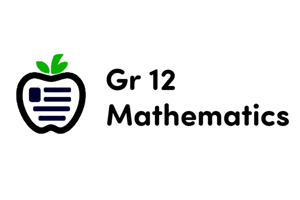Podcast
Questions and Answers
What is the main purpose of the arithmetic series sum formula?
What is the main purpose of the arithmetic series sum formula?
- To find the sum of the first n terms without adding them individually (correct)
- To calculate the common difference between consecutive terms
- To determine the first term of a given sequence
- To find the total number of terms in a sequence
Which of the following is NOT an example of a practical application of arithmetic series formulas?
Which of the following is NOT an example of a practical application of arithmetic series formulas?
- Solving problems in financial mathematics
- Calculating total payments over time
- Understanding sequence-related problems in physics and engineering
- Determining the prime factorization of a given number (correct)
Which of the following is typically NOT involved in exercises related to finite arithmetic series?
Which of the following is typically NOT involved in exercises related to finite arithmetic series?
- Calculating the greatest common divisor of two numbers (correct)
- Applying the sum formulas to various contexts, like payment schedules or total distance traveled
- Finding the sum given the first term, common difference, and number of terms
- Determining the number of terms given the sum and specific terms of the series
Which of the following is NOT mentioned as a potential challenge in understanding finite arithmetic series?
Which of the following is NOT mentioned as a potential challenge in understanding finite arithmetic series?
What is the elegance of arithmetic series attributed to?
What is the elegance of arithmetic series attributed to?
Which of the following formulas is used to calculate the sum of the first n terms of an arithmetic series?
Which of the following formulas is used to calculate the sum of the first n terms of an arithmetic series?
In the example provided, what is the common difference of the sequence defined by $a_n = 3 + 7(n-1)$?
In the example provided, what is the common difference of the sequence defined by $a_n = 3 + 7(n-1)$?
What is the purpose of studying finite arithmetic series, according to the conclusion?
What is the purpose of studying finite arithmetic series, according to the conclusion?
Which of the following statements is NOT true about the challenges in understanding finite arithmetic series?
Which of the following statements is NOT true about the challenges in understanding finite arithmetic series?
Which of the following statements is true about arithmetic series formulas?
Which of the following statements is true about arithmetic series formulas?
What is the formula for the nth term of an arithmetic sequence?
What is the formula for the nth term of an arithmetic sequence?
What does the common difference (d) represent in an arithmetic sequence?
What does the common difference (d) represent in an arithmetic sequence?
Which formula is used to calculate the sum of a finite arithmetic series using the first and last terms?
Which formula is used to calculate the sum of a finite arithmetic series using the first and last terms?
Who discovered a method to calculate the sum of the first 100 positive integers?
Who discovered a method to calculate the sum of the first 100 positive integers?
What is the general formula for the sum of a finite arithmetic series using the common difference?
What is the general formula for the sum of a finite arithmetic series using the common difference?
How is the general formula for the sum of a finite arithmetic series derived?
How is the general formula for the sum of a finite arithmetic series derived?
If the first term of an arithmetic sequence is 5 and the common difference is 3, what is the 10th term?
If the first term of an arithmetic sequence is 5 and the common difference is 3, what is the 10th term?
What is the sum of the first 20 terms of an arithmetic sequence with the first term 2 and common difference 4?
What is the sum of the first 20 terms of an arithmetic sequence with the first term 2 and common difference 4?
If the sum of the first 10 terms of an arithmetic sequence is 275 and the first term is 10, what is the common difference?
If the sum of the first 10 terms of an arithmetic sequence is 275 and the first term is 10, what is the common difference?
What is the sum of the first 15 terms of an arithmetic sequence with the first term 3 and common difference -2?
What is the sum of the first 15 terms of an arithmetic sequence with the first term 3 and common difference -2?
In an arithmetic sequence, how is each term related to the previous term?
In an arithmetic sequence, how is each term related to the previous term?
What does the variable $d$ represent in the formula for the $n$th term of an arithmetic sequence, $T_n = a + (n - 1)d$?
What does the variable $d$ represent in the formula for the $n$th term of an arithmetic sequence, $T_n = a + (n - 1)d$?
Which formula is used to calculate the sum of a finite arithmetic series using the first and last terms?
Which formula is used to calculate the sum of a finite arithmetic series using the first and last terms?
What did Gauss discover about the sum of the first 100 positive integers?
What did Gauss discover about the sum of the first 100 positive integers?
How is the general formula for the sum of a finite arithmetic series derived?
How is the general formula for the sum of a finite arithmetic series derived?
Which of the following statements is true about the sum of a finite arithmetic series?
Which of the following statements is true about the sum of a finite arithmetic series?
If the first term of an arithmetic sequence is 10 and the common difference is 5, what is the 20th term?
If the first term of an arithmetic sequence is 10 and the common difference is 5, what is the 20th term?
What is the sum of the first 15 terms of an arithmetic sequence with the first term 5 and common difference 3?
What is the sum of the first 15 terms of an arithmetic sequence with the first term 5 and common difference 3?
If the sum of the first 20 terms of an arithmetic sequence is 1050, and the first term is 15, what is the common difference?
If the sum of the first 20 terms of an arithmetic sequence is 1050, and the first term is 15, what is the common difference?
Which of the following statements is true about the options (choices/distractors) in a well-constructed multiple-choice question?
Which of the following statements is true about the options (choices/distractors) in a well-constructed multiple-choice question?
Which of the following is a practical application of arithmetic series formulas mentioned in the text?
Which of the following is a practical application of arithmetic series formulas mentioned in the text?
What is the common difference of the sequence defined by $a_n = 3 + 7(n-1)$ in the example provided?
What is the common difference of the sequence defined by $a_n = 3 + 7(n-1)$ in the example provided?
Which of the following is typically NOT involved in exercises related to finite arithmetic series?
Which of the following is typically NOT involved in exercises related to finite arithmetic series?
Which formula is used to calculate the sum of a finite arithmetic series using the first and last terms?
Which formula is used to calculate the sum of a finite arithmetic series using the first and last terms?
What is the purpose of studying finite arithmetic series, according to the conclusion?
What is the purpose of studying finite arithmetic series, according to the conclusion?
What does the common difference (d) represent in an arithmetic sequence?
What does the common difference (d) represent in an arithmetic sequence?
If the first term of an arithmetic sequence is 5 and the common difference is 3, what is the 10th term?
If the first term of an arithmetic sequence is 5 and the common difference is 3, what is the 10th term?
Which of the following is a challenge in understanding finite arithmetic series mentioned in the text?
Which of the following is a challenge in understanding finite arithmetic series mentioned in the text?
Which of the following statements is true about arithmetic series formulas?
Which of the following statements is true about arithmetic series formulas?




